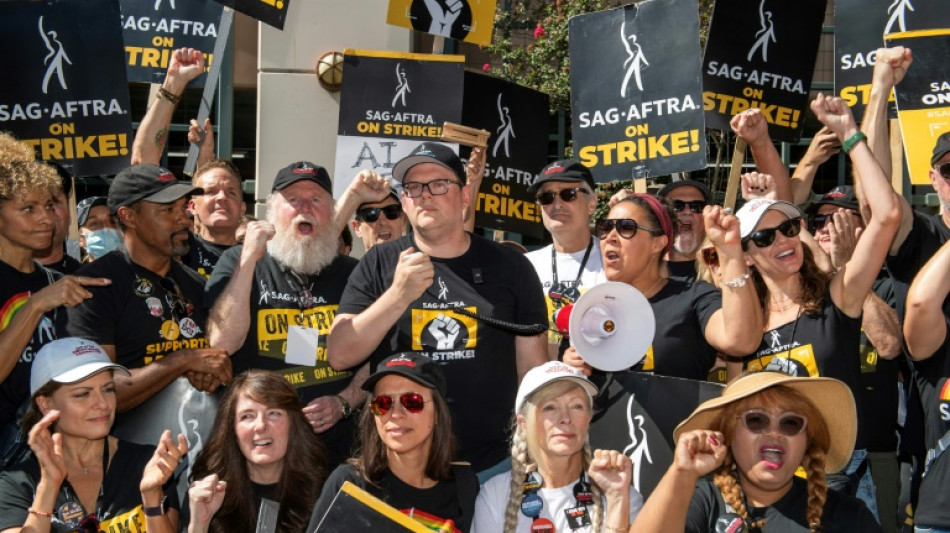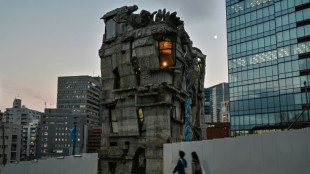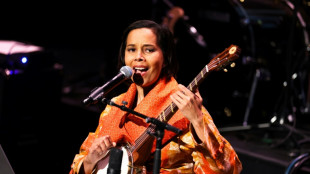

Talks to end Hollywood actors' strike suspended
Talks between Hollywood actors and studios over an ongoing strike were suspended Wednesday, both parties said, in a blow to hopes for a swift end to a crisis that has crippled the entertainment industry.
Heads of studios such as Disney and Netflix had been meeting regularly since last week with negotiators for the Screen Actors Guild (SAG-AFTRA), whose members walked off film and TV sets in July.
In a statement late Wednesday, the studios said talks would be temporarily suspended, with SAG-AFTRA later accusing them of using "bully tactics" and "putting out misleading information" about the negotiations.
"After meaningful conversations, it is clear that the gap between the AMPTP and SAG-AFTRA is too great, and conversations are no longer moving us in a productive direction," said the studios, who are represented by the the Alliance of Motion Picture and Television Producers (AMPTP).
Last month, the AMPTP struck a deal with Hollywood writers, ending that union's own lengthy and largely concurrent strike.
Given that deal, and overlaps between SAG-AFTRA's demands and those of the writers, optimism had been growing that a deal with the actors could also be struck soon.
That hope has now dimmed, with SAG-AFTRA on early Thursday accusing the studios of not making realistic offers and misrepresenting proposals made during negotiations.
"We have negotiated with them in good faith, despite the fact that last week they presented an offer that was, shockingly, worth less than they proposed before the strike began," the union said in a statement.
"The companies are using the same failed strategy they tried to inflict on the (writers' union) –- putting out misleading information in an attempt to fool our members into abandoning our solidarity and putting pressure on our negotiators."
Even with writers now back to work, most film and TV production cannot restart until the demands of SAG-AFTRA are resolved, costing the entertainment industry and its workers millions of dollars each day.
- 'Economic burden' -
In Wednesday's statement, the AMPTP accused actors of making excessive demands, including for a share of revenues from hit streaming shows that "by itself, would cost more than $800 million per year."
Studios described that as an "untenable economic burden," but SAG-AFTRA said the AMPTP "intentionally misrepresented to the press the cost of the proposal," inflating its cost by 60 percent.
"We have made big, meaningful counters on our end, including completely transforming our revenue share proposal, which would cost the companies less than 57c per subscriber each year. They have rejected our proposals and refused to counter," the union said in a statement.
The studios also accused SAG-AFTRA of rejecting parallel wage increases that had been accepted by the writers' and directors' unions earlier this year.
"We hope that SAG-AFTRA will reconsider and return to productive negotiations soon," said the studios.
The actors' union said it was "ready to negotiate today, tomorrow, and every day."
Like the writers, actors have called for improved pay, greater transparency over profits from hit streaming shows, and protections against the use of artificial intelligence (AI) technologies.
SAG-AFTRA pay demands go further than those of the writers.
Their concerns about the threat posed to them by AI also arguably run deeper.
Actors fear that the technology could be used to clone their voices and likenesses, and reuse them in perpetuity without compensation or consent.
SAG-AFTRA said the studios' proposal regarding AI was "continuing to demand 'consent' on the first day of employment for use of a performer's digital replica for an entire cinematic universe (or any franchise project)."
Some film and TV productions involving smaller Hollywood studios have already resumed, thanks to temporary waivers known as "interim agreements."
The actors' union said its overall strike would continue.
"We have sacrificed too much to capitulate to their stonewalling and greed," SAG-AFTRA said.
H.Brunner--HHA



